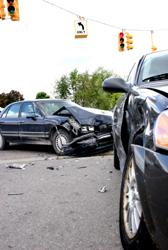- Free Consultation: (630) 527-4177 Tap Here to Call Us
Navigating Insurance Coverage Issues in Illinois Rideshare Accidents

Rideshare services like Uber and Lyft have revolutionized the way we travel, offering convenience and flexibility. However, when an accident occurs during a rideshare trip, understanding the complexities of insurance coverage can be challenging. Determining which insurance policy applies and how to proceed with a claim can be confusing. Here’s a detailed guide to help you navigate the insurance coverage issues that arise in the event of a rideshare accident.
An Overview of Rideshare Insurance Coverage
Rideshare companies provide varying levels of insurance coverage depending on the driver’s status at the time of the accident. These coverage levels are designed to address the unique nature of rideshare operations, which involve both personal and commercial use of the driver’s vehicle.
Here’s how the coverage typically works:
- Offline or the App is Off: When the rideshare app is off, the driver’s personal auto insurance policy is the only coverage available. Rideshare company insurance does not apply during this period.
- App is On, but No Ride Accepted: If the driver is logged into the app but has not yet accepted a ride request, a limited liability coverage provided by the rideshare company may apply. In most cases, this coverage includes:
- Liability Coverage: Typically, $50,000 per person for bodily injury, $100,000 per accident for bodily injury, and $25,000 for property damage.
- Ride Accepted or Passenger Onboard: Once a ride is accepted and while the passenger is in the vehicle, the rideshare company provides the most comprehensive coverage, which is typically:
- Liability Coverage: $1 million for bodily injury and property damage.
- Uninsured/Underinsured Motorist (UM/UIM) Coverage: This may also be provided up to $1 million, depending on the state.
- Contingent Collision and Comprehensive Coverage: This coverage applies if the driver carries these coverages on their personal auto policy. The rideshare company’s policy may cover physical damage to the driver’s vehicle with a deductible, usually around $1,000.

Common Insurance Coverage Issues in Rideshare Accidents
Despite these provisions, several issues can arise when determining coverage after a rideshare accident:
- Coverage Gaps: If a rideshare driver’s personal auto insurance policy does not include a rideshare endorsement, there may be gaps in coverage. Personal policies often exclude coverage for accidents that occur while the driver is logged into a rideshare app but has not yet accepted a ride.
- Multiple Insurance Policies: Determining the primary and secondary insurance policies can be complicated. In cases involving other drivers or multiple vehicles, there may be disputes over which insurance company is responsible for covering damages and injuries.
- Claims Denial: Insurance companies, including those providing rideshare coverage, may deny claims for various reasons. This can include policy exclusions, driver negligence, or disputes over fault.
Steps to Take After a Rideshare Accident
If you’re involved in a rideshare accident, whether as a driver, passenger, or third party, it’s crucial to take the following steps to protect your rights and ensure appropriate insurance coverage:
- Report the Accident: Immediately report the accident to the police and obtain a copy of the accident report. Also, report the incident to the rideshare company through their app or customer service.
- Seek Medical Attention: Ensure that you and any other involved parties receive necessary medical treatment, even if injuries seem minor.
- Document the Scene: Take photos of the accident scene, vehicle damage, and any visible injuries. Collect contact information from the rideshare driver, witnesses, and other involved parties.
- Notify Insurance Companies: Inform your personal auto insurance company and the rideshare company’s insurance provider about the accident. Provide them with all relevant details and documentation.
- Consult with an Attorney: Make sure you consult with a personal injury attorney experienced in rideshare accidents. They can help navigate the complex insurance landscape, negotiate with insurance companies, and pursue compensation for your injuries and damages.
Rideshare accidents present unique insurance coverage challenges that require careful navigation. Understanding the different coverage levels provided by rideshare companies and taking appropriate steps after an accident can help ensure you receive the compensation you deserve. If you’re involved in a rideshare accident, staying informed and seeking professional advice can make a significant difference in the outcome of your claim.
Contact the Illinois Rideshare Accident Attorneys at John J. Malm & Associates
John J. Malm & Associates is an experienced Illinois personal injury law firm representing individuals and families who have suffered an injury or loss due to an accident. You may be entitled to a substantial settlement if you have been injured. Call 630-527-4177 and speak with Attorney John J. Malm and his team today.









